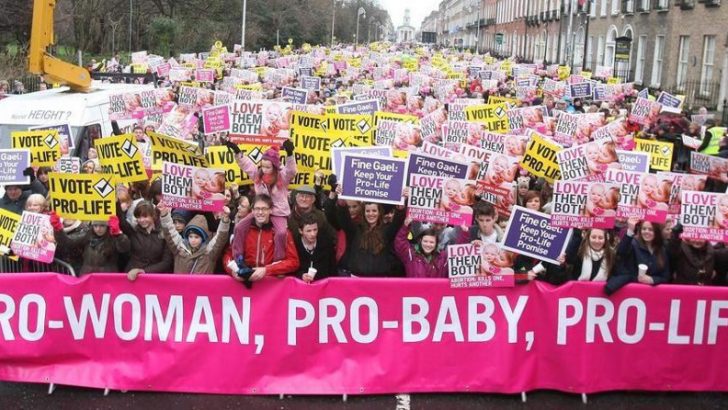David Mullins
Charles Dickens famously opened his novel A Tale of Two Cities with the immortal line: “It was the best of times, it was the worst of times, it was the age of wisdom, it was the age of foolishness.”
Anyone who was paying close attention to recent proceedings in Leinster House would have observed similarly stark contrasts.
On Wednesday, the Chair of the Citizens Assembly, Justice Mary Laffoy, appeared before the Oireachtas Joint Committee on the Eighth Amendment of the Constitution.
There she robustly defended the “legitimacy” of the assembly recommendations; a phrase she would repeat several times during the course of her presentation.
Justice Laffoy premised her defence of this legitimacy not on any kind of ethical evaluation, but rather on the claim that since a sound and rigorous methodology had been employed with respect to the presentation of information, the recommendations thereby acquired a certain kind of immutable authority.
Overhaul
The majority of the committee members who questioned Justice Laffoy made it clear that they agreed substantially with the recommendations of the assembly, and that a radical legislative and constitutional overhaul of Ireland’s ‘restrictive’ prohibition on abortion was urgently required.
The argument was put, without much interrogation of what this would mean in practice, that accessing terminations of pregnancy without restriction as to reason is simply an extension of the legitimate ‘medical care’ that women are entitled too. Anything else is a failure of ‘compassion’.
Let us contrast this with the work of the Oireachtas Joint Committee on Health. On the same day as Justice Laffoy’s Oireachtas appearance, the health committee’s report Scrutiny of the Cannabis for Medicinal Use Regulation Bill 2016 was posted for public review on the Oireachtas website.
The committee had rejected the Bill on several perfectly reasonable grounds. Its fundamental concern was that the Bill, by seeking to remove cannabis from the Misuse of Drugs Act 1977, could have “major unintended policy consequences”. What is striking here is that this language is almost identical to that used by those of us who argue against repealing the existing constitutional protections for human life.
The ‘intended policy’ may be to ‘limit’ access to abortion, but the experience of every jurisdiction where abortion provision is widespread reveals another story. This is, that once the principle is conceded that innocent human life can be targeted, then it becomes inevitable that legislation will expand to accommodate an ever-increasing list of ‘exceptions’. This happens because the principled basis for denying such exceptions has been removed. To see this we need only observe the distance that has already been travelled between the 2013 Protection of Life Act and the radical nature of the assembly’s recommendations.
We have moved very quickly from supposedly legislating for the ‘X’ Case to abortion without restriction irrespective of the unborn child’s gestational age or health status.
Interesting
What is also interesting is that the Committee on Health linked its concerns around unintended policy consequences to its fear that introducing medicinal cannabis would eventually lead to the decriminalising of the drug in non-medicinal circumstances. One need only reflect on the push for access to abortion on ‘socioeconomic’ grounds to see the parallel here. What may initially start off as ‘medical’ need rapidly transforms into ‘social’ need.
The experience of how the theoretically narrow provisions of the 1967 UK Abortion Act have been implemented in practice bears this out.
The Committee on Health also rejected the Cannabis Bill on the grounds that “potential benefits had to be balanced against risks”.
This seems to be a consideration that will play little if any part in the Committee on the Eighth Amendment’s deliberations even though the risks are several orders of magnitude greater, that is, the imminent, assured and intentional ending of human life.
There, the overriding thrust of the argument for expanding abortion ‘rights’ will be based on a narrow conception of personal autonomy that at best simply displaces the lethal risk to the unborn child.
Finally, the Committee on Health rejected the cannabis bill as it “would create legislative contradictions between the Bill and existing Acts”.
The inescapable fact is however that by introducing abortion on the basis of the assembly recommendations, we too will be creating irreconcilable contradictions. We will have legislation and policies with grand sounding titles like ‘Children First’. We will still make much of our attachment to the principle of the Proclamation to “cherish all the children of the nation equally”. But, the facts will say otherwise. We will instead have chosen to establish a parallel but superior principle that permits the targeting of innocent unborn children through all nine months of pregnancy and further, to have such actions protected as a right.
Commenting on the decision of the Health Committee, one of its members, the passionately pro-choice Fine Gael TD for Dublin Bay South, Kate O’Connell, said: “When we authorise medicines we need to make sure they are of a high quality, are safe and are effective – and that their effects are measurable and quantifiable.”
She added: “Cannabis has many psychoactive effects which are potentially harmful…Our primary role as legislators is to safeguard the public. I believe today’s report does just that.”
Is it not absolutely incredible that even the ‘potential’ for cannabis to cause harm was enough for Deputy O’Connell to vote the way she did; yet when it comes to the quantifiable harm caused by abortion, such caution appears to evaporate?
At the most fundamental level, we must ask ourselves this question: why are the principles adopted by the Health Committee deemed reasonable and sufficient to justify a ban on the use of medicinal cannabis, but insufficient to justify a prohibition on ending human life in the womb?
It is doubtful that a clear answer can be provided to this question given that so much of the campaign to repeal is based on little more than the assertion of adult wishes and not any evidenced based argument per se.



